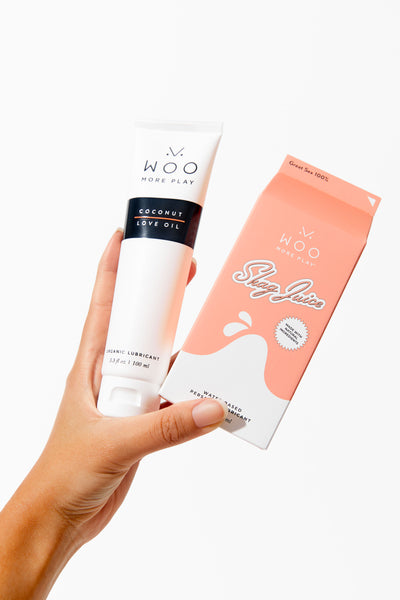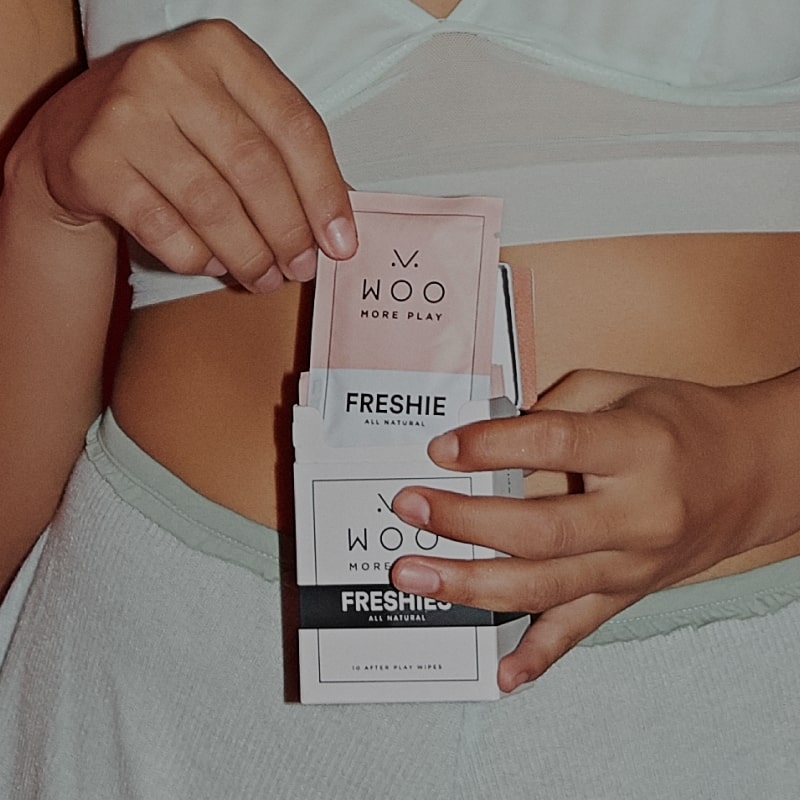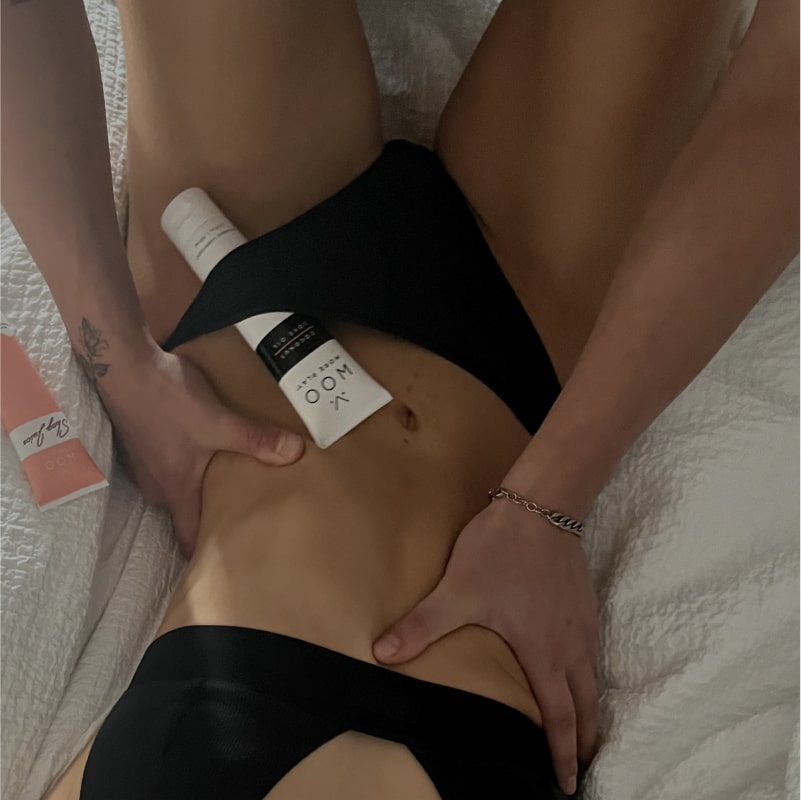Why Can’t I Cum During Sex? Here’s What Might Be Going On
(all things sex)
First of all, it’s more common than you think
You’re turned on. You’re into your partner. You’re doing everything right. But the orgasm? Nowhere in sight. If this sounds familiar, you’re not broken. You’re not “doing it wrong.” And you’re not alone.
So, why can’t you cum during sex?
Especially for first-timers, that question can feel frustrating, embarrassing, or even a little scary. But let’s take a deep breath and get real about it. Reaching orgasm is not a performance. It’s not a finish line. And it’s definitely not something that just magically happens because you're naked and in love.
Whether you're new to sex or still figuring out what you like, we’re here to unpack the physical, mental, and lifestyle factors that might be holding your orgasm hostage—and what to do about it.
Let’s Start With the Obvious: There’s Nothing “Wrong” With You
Orgasms are complex. And while movies make it seem like sex is a guaranteed fireworks show, IRL? It’s more of a learning curve, especially if you’re newer to exploring your body, your desires, or how to communicate them.
So if you’ve ever asked, “Why can’t I cum during sex?”—we’d reframe it as: “What do I need to feel safe, turned on, and connected enough to cum?”
Common Reasons You Might Not Be Cumming
Let’s break down a few key areas: medical, mental, and lifestyle-related.
1. Your Body Might Be Trying to Tell You Something
- Hormones: Estrogen, testosterone, and even your birth control can affect arousal and orgasm.
- Blood Pressure & Circulation: Yep, healthy blood flow plays a big role in sexual functioning.
- Medications: Antidepressants (SSRIs), antihistamines, and other meds can delay or dampen climax.
-
Sexual Dysfunction Conditions: Things like anorgasmia (trouble reaching orgasm), or even pain during penetration, are real. And common.
If any of these sound familiar, a chat with a provider who understands sexual medicine could be a great next step. Bonus if they don’t flinch at the word “clitoris.”

2. Your Brain Runs the Show
Orgasms don’t start between your legs—they start in your brain. And if your mind is racing, your orgasm might be pacing right out the door.
Let’s talk about common culprits:
- Anxiety and Stress: Performance pressure, fear of how you look, overthinking—these are orgasm killers.
- Shame or Taboos: Growing up with mixed messages about sex can wire your brain to feel guilt or tension when it’s time to let go.
-
Feeling Unsafe: Whether it’s emotional distance, poor communication, or lack of consent—your body isn’t going to relax enough to climax if your mind’s on high alert.
PSA: Emotional safety is sexy. So is lube. (Just saying.)
Clitoral vs. Vaginal Stimulation—Know the Orgasm You’re Aiming For
News flash: Most women don’t orgasm from penetration alone. Only about 18% do. This means for the other 82%, that “why can’t I cum?” question might have an easy answer—you need clitoral stimulation.
If you’re curious how vaginal and clitoral orgasms differ, we broke it down in this blog for you. TL;DR: The clit is queen. It has over 8,000 nerve endings and deserves your full attention.
Things That Help You Actually Enjoy Sex (And Orgasm From It)
1. Know Your Own Body
This is your permission slip to explore. Solo play helps you figure out what you like, what you don’t, and how to communicate that.
Start with a gentle, beginner-friendly vibe like Mushroom Vibez or our Vibez I Cum First toy. Add our Coconut Love Oil for a silky glide that smells (and tastes) like vanilla cupcakes. Sweet.
2. Use the Damn Lube
Friction is the enemy of fun. Lube = hydration, sensation, and longer playtime without discomfort. WOO’s Coconut Love Oil is a multitasker—lube, massage oil, and edible dessert topping for your body. Just kidding. Sort of.
3. Talk To Your Partner
Don’t assume they know what you want. No one’s a mind reader. Ask for clit action, try different positions, and experiment with speed and rhythm. Cumming isn’t a magic trick. It’s communication.
Other Risk Factors to Consider
Some things can quietly mess with your sex life—and your ability to finish.
- Drinking or Smoking: Alcohol can dull sensation. Nicotine affects circulation.
- Lack of Sleep or Exercise: Being out of sync with your body affects energy and arousal.
-
Relationship Dynamics: Resentment, lack of intimacy, or mismatched libidos can affect connection (and climax).
These aren’t about blame—they’re about awareness. Knowing your risk factors helps you navigate what’s getting in the way of your sexual functioning.
Can You Learn to Orgasm?
Hell yes, you can. Orgasms are a learned response, not a default setting. Think of it like learning how to ride a bike or hit that high note in karaoke: it takes practice, presence, and the right conditions.
For women who struggle to climax during penetration, layering clitoral stimulation (either from your hand, your partner, or a toy like Vibez) can make all the difference.
Not sure if you're doing it "right"? That blog on how to make yourself squirt might help change your life.
Quick FAQs (Because You’re Not the Only One Wondering)
Why can’t I cum during sex with my partner, but I can on my own?
You might feel more relaxed solo, or maybe your partner isn’t hitting the right spots. Communication and clitoral stimulation can help bridge the gap.
Is delayed ejaculation a thing for women too?
While the term “delayed ejaculation” is used for men, women can experience something similar—difficulty reaching orgasm despite being aroused. It’s valid. It’s real. And it’s fixable.
Could my birth control be affecting my orgasm?
Yes. Hormonal contraception can affect libido, lubrication, and orgasmic response. If you suspect it’s messing with your sex life, talk to your provider.
Does everyone orgasm during sex?
Nope. And you’re still normal. Cumming isn’t a requirement for good sex. It’s a possibility, not a promise.
So... How Do You Cum?
- Start by exploring what feels good on your own.
- Introduce a beginner-friendly toy or two.
- Use lube. A lot of it.
- Communicate what you like.
-
Get curious, not critical.
And if you want a little help? Coconut Love Oil was literally made for this. Your orgasm might just need a little push—or a gentle glide.
Your orgasm is not a race, a test, or a prize. It’s a language that your body already knows—you’re just learning how to listen.
























